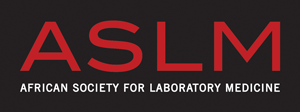The African Society for Laboratory Medicine (ASLM) is an independent, international, not-for-profit organisation founded in March 2011 in Addis Ababa that coordinates, galvanises and mobilises relevant stakeholders at the local, national, and international levels to improve local access to world-class diagnostic services and ensure healthy African communities now and for the long-term. ASLM is the first pan-African society for laboratory professionals, endorsed by the African Union (AU) and supported by multiple African Ministers of Health through its Ministerial Call for Action.
ASLM VISION AND MISSION
Vision statement: A healthier Africa through access to quality laboratory services for all.
Mission Statement: To improve clinical and public health outcomes in Africa by enhancing professional laboratory practice, science and networks.
ASLM STRATEGIC PILLARS
Based on the partnership and network centred approach, ASLM works on five functional pillars
Laboratory Networks: Strengthen laboratory networks and systems to support the delivery of clinical and public health functions.
Laboratory Workforce: Strengthen the laboratory workforce in Africa.
Quality of Laboratory Services: Improve the quality of laboratory services towards accreditation based on national, regional and international standards.
Regulatory Systems: Promote and support harmonised national and regional regulatory systems for diagnostic products, technologies and services.
Communication & Knowledge Management: Strengthen data collection, analysis and sharing capacity, communication platforms and advocacy to promote the laboratory profession and contribute to evidence-based laboratory medicine in Africa.
ASLM serves the community of laboratory professionals, as well as networks of public health laboratories delivering clinical and public health functions in Africa. ASLM serves the global health agenda for the laboratory sector in Africa by supporting the efforts of Africa CDC and the World Health Organization (WHO) Regional Office for Africa (AFRO) and Regional Office for the Eastern Mediterranean.
The primary goal of ASLM is to promote the value of all medical laboratories and laboratory networks in Africa within all sectors including; Ministries of Heath, National Public Health Institutes, research laboratories, universities and other tertiary institutions, private medical laboratory sector, and National Laboratory Professional Associations as an essential resource to improve the overall health status of Africa. ASLM’s expertise includes, support for the development of specialised diagnostic technology, international accreditations, and quality assurance, a neutral convener of international conferences on critical issues, and fostering development of laboratory workforce programs to meet the growing needs of national laboratory systems.
ASLM strives to achieve its goals and objectives by coordinating and synergising partnerships, and advocating for and facilitating cost-effective interventions for laboratory strengthening. ASLM brings together programs, expertise, institutions and laboratory professionals to catalyse new initiatives and processes toward improved laboratory capacity on the continent.
Since its inception, ASLM has recognised the WHO Resolution AFR/RC58/R2 for strengthening public health laboratories in the African region and the 2008 Maputo Declaration on Strengthening of Laboratory Systems. ASLM has been working collaboratively with government, local and international organisations, implementing partners, and the private sector to advance medical laboratory capacity, in alignment with the priorities of WHO-AFRO, UNAIDS, the Global Fund to Fight AIDS, Tuberculosis and Malaria, and large global health programs such as President Emergency Plan for AIDS Relief (PEPFAR). Following the evolution of the global health landscape, ASLM is also aligning its strategy with that of the Africa Centres for Disease Control and Prevention and with the goals of the Global Health Security Agenda in support of the implementation of core capacities relevant to the International Health Regulations (IHR, 2005) and the Universal Health Coverage (UHC).

